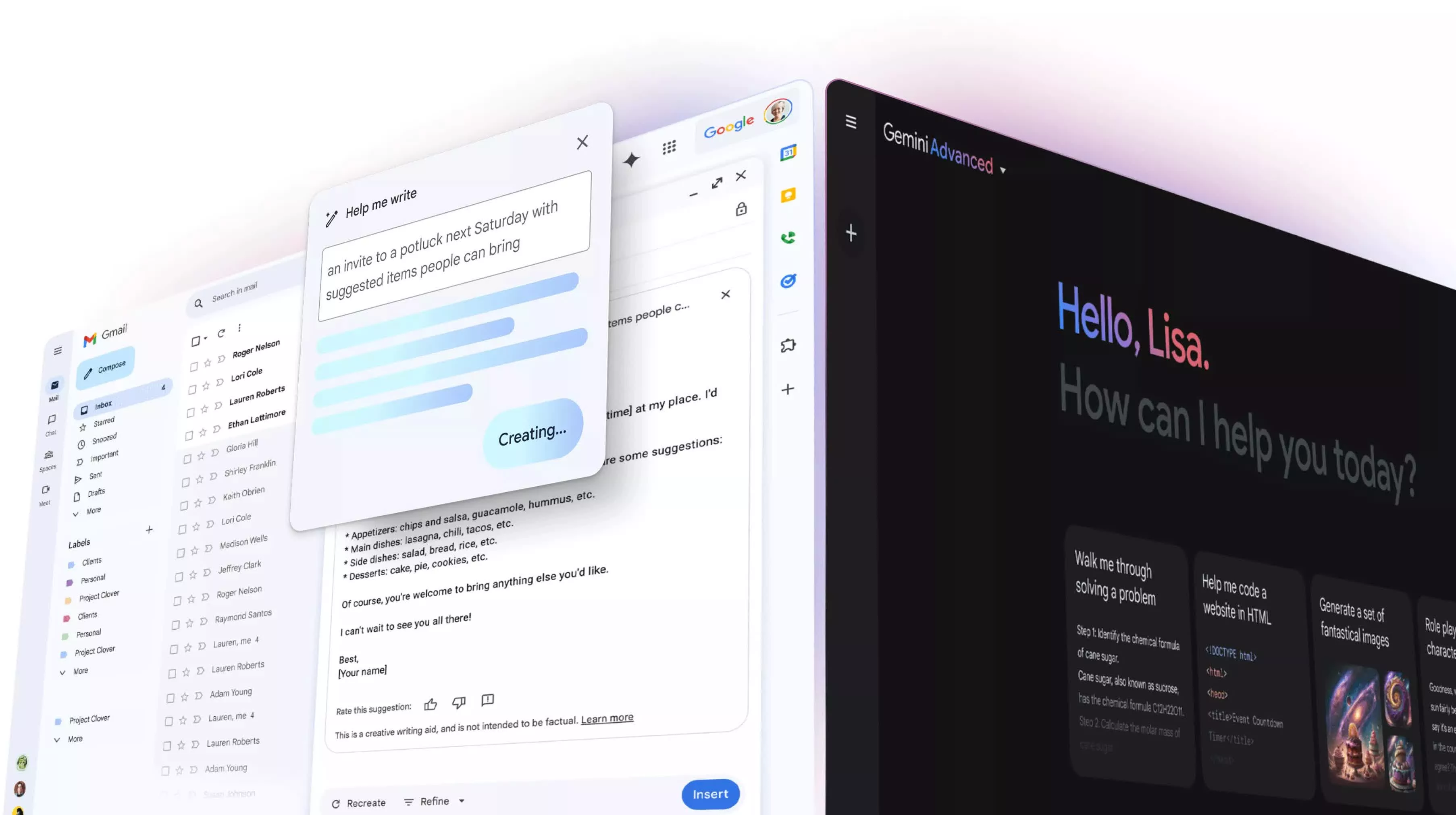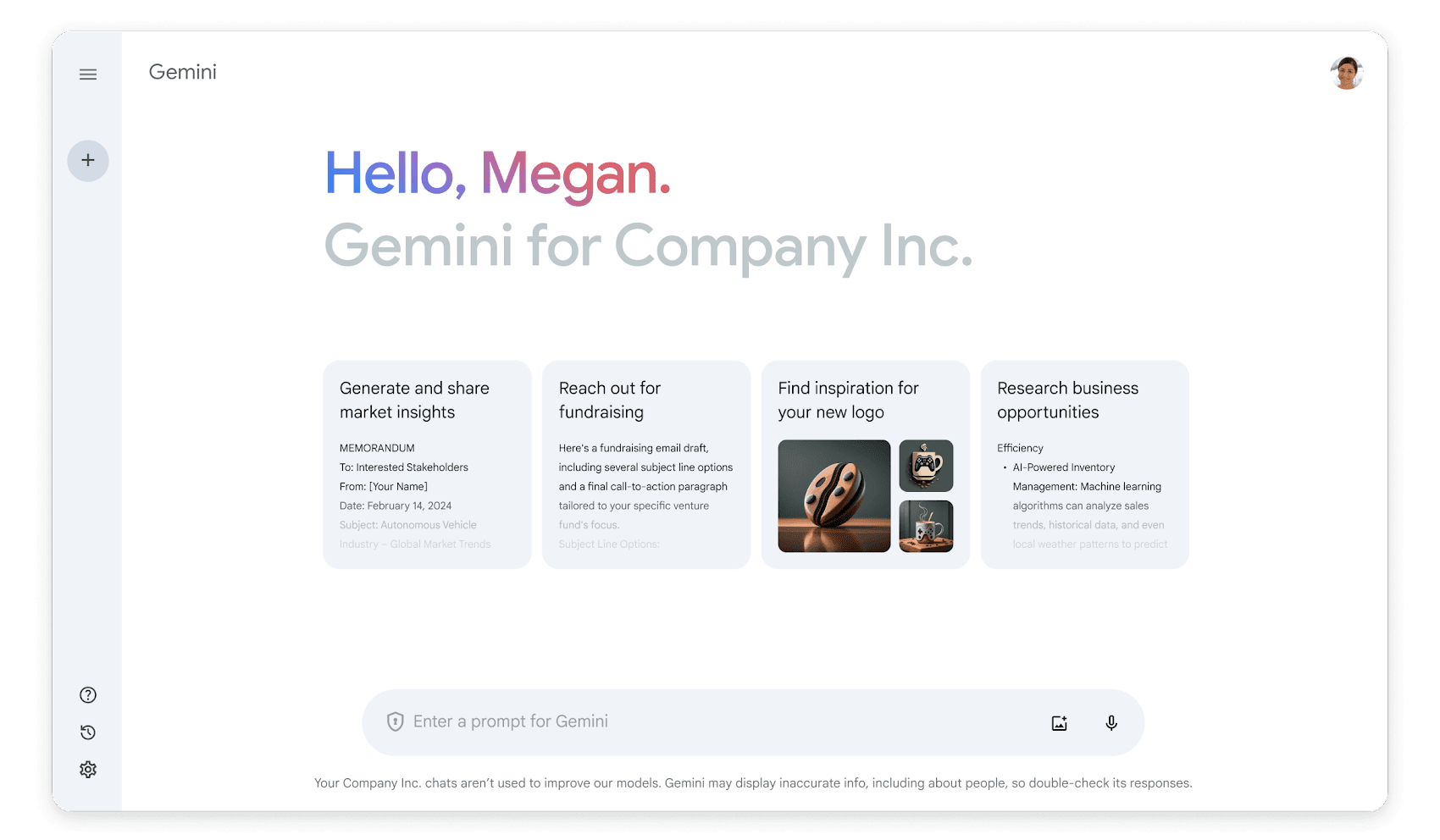Forward-looking: Companies like Google and Microsoft have been scrambling to integrate as many GenAI features into their productivity suites as soon possible. Case in point, this week at Google's Cloud Next event, the company was ready to unveil a huge range of new AI integrations in the latest version of Workspace, even adding a new GenAI tool for video creation and editing called Vids.
While generative AI is expected to have a significant impact on many applications, productivity tools are anticipated to see some of the earliest benefits. According to a study by TECHnalysis Research on GenAI in the Enterprise, office productivity applications were the most likely to be deployed first by companies and were also expected to yield some of the best results.
Much of the news around Google Workspace was tied to the general release of the Gemini Pro 1.5 large language model, which now supports up to 1 million tokens for prompts – the largest of any commercially available product. This enhancement enables the summarization of extremely large documents and to provide significantly more context for a given request.
Google says that Gemini Pro's output can now be grounded by Google Search, meaning the results can be verified and linked to the latest information in the search engine. This should improve the quality of the information generated by Gemini and reduce errors.
Google is setting up Gemini Pro 1.5 to power several new capabilities in the latest versions of Workspace apps. For example, mobile Gmail gets new text creation capabilities that can turn voice input into polished emails. Sheets is gaining the ability to instantly build fully formatted tables via what the company is calling "building blocks." Also, Gemini Pro 1.5-powered chat is now available as a sidebar within Google Chat.
Docs has new tools to integrate multiple data sources as tabs to more easily organize complex projects. Google Meet will gain automatic caption translations, AI-powered video quality improvements, and more advanced meeting summarization and multi-language translation.
The new Vids application, available to licensed Workspace users starting in June, is designed to simplify the creation of corporate videos for product introductions, employee onboarding and training. While it doesn't generate new video content via GenAI, it assists in the process of stitching together existing stock or custom footage, creating scripts, generating voice-overs, and more with the help of Gemini's multi-modal capabilities. For organizations with access to other content libraries, such as Adobe Stock, those video assets can also be incorporated into the final output in Vids.
Google also unveiled new pricing and options for Workspace. For companies interested in accessing the enhanced Gemini Pro Chat capabilities and the meeting summarization and translation features in Meet, the new AI Meetings and Messaging service will be available for $10/user/month. This is competitive compared to the $30 a month for large enterprises and $20 a month for small businesses that Google currently charges for the full Workspace suite, which includes Chat, Meet, and the new Vids app.
It also lowers the price of entry into GenAI for companies that want to utilize the capabilities of LLM-based search and chat, without the need for the full suite. This strategy provides a way for organizations using Microsoft Office to experiment with some of Google's offerings and leverage Gemini's capabilities without committing to a complete switch.
A separate AI security add-on is being offered for $10/user/month that uses GenAI to automatically scan files in Google Drive accounts, marking appropriate files as protected to prevent inappropriate access or sharing. Google is also enhancing Gmail with Data Loss Protection (DLP) capabilities for customers who opt for this service.
Probably the most intriguing new option for Workspace is the ability to build custom AI-powered agents with Google's Vertex AI platform and then integrate those agents into Workspace. While definitely a longer and more complicated process, the potential impact that these new agents could have on business workflows and processes within organizations is enormous.
Google showcased a variety of examples during their Next keynote and the customizations to specific industries, tasks and even job roles was exciting and compelling. I expect to hear a lot more about these AI agents and what they'll be capable of over the next few months.
The race to integrate GenAI into productivity tools is accelerating, and it's clear that Google sees an opportunity to differentiate their Workspace offering with these new capabilities. Microsoft still has a commanding market share in office productivity, but for the growing number of organizations who are eager to dive into the capabilities that home-built generative AI tools can enable, Google's Workspace is bound to become an attractive alternative.
Bob O'Donnell is the founder and chief analyst of TECHnalysis Research, LLC a technology consulting firm that provides strategic consulting and market research services to the technology industry and professional financial community. You can follow him on Twitter @bobodtech

